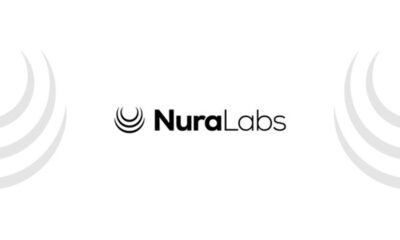Cybersecurity
Is Your Privacy at Risk? What You Need to Know About New Data Regulations in 2025

In 2025, the digital landscape continues to evolve rapidly, bringing significant changes in data privacy regulations worldwide. As technology advances and data becomes an increasingly valuable asset, governments and organisations are implementing new laws and policies to protect individuals’ personal information. This comprehensive report delves into the current state of data privacy, highlighting key developments, challenges, and implications for consumers and businesses.
The Global Surge in Data Privacy Legislation
The past decade has witnessed a remarkable increase in data privacy laws worldwide. Countries are recognizing the importance of safeguarding personal information and enacting legislation to address the challenges posed by digital technologies.
United States: A Patchwork of State Laws
In the absence of comprehensive federal data privacy legislation, individual U.S. states have taken the initiative to establish their own regulations. As of 2025, 16 states have enacted comprehensive data privacy laws, with eight new laws being enacted this year alone. These include Delaware, Iowa, Nebraska, New Hampshire, New Jersey, Tennessee, Minnesota, and Maryland.
Each state’s law introduces varying business requirements regarding data collection, processing, and consumer rights, creating a complex compliance landscape. For instance, Maryland’s law imposes stringent obligations on businesses, including data protection assessments and limitations on data processing.
European Union: Strengthening the GDPR Framework
The European Union’s General Data Protection Regulation (GDPR) remains a cornerstone of global data privacy. In 2025, the EU continues to refine and enforce GDPR provisions, particularly concerning artificial intelligence (AI) and cross-border data transfers. The Italian data protection authority, Garante, fined AI company Luka Inc. €5 million for processing user data without a legal basis and lacking effective age-verification systems.
Additionally, privacy advocacy group NOYB has challenged Meta Platforms’ plan to use European users’ data for AI training, citing GDPR violations.
Asia: Emerging Data Protection Frameworks
Countries in Asia are also advancing their data privacy regulations.
- India: The Digital Personal Data Protection Act, 2023, establishes obligations for data fiduciaries and rights for data principals, focusing on digital personal data.
- China: The Personal Information Protection Law (PIPL), effective since 2021, regulates personal information processing activities and promotes the rational use of personal information.
- Brazil: The General Personal Data Protection Law (LGPD) unifies various laws regulating personal data processing, emphasizing transparency and user consent.
Key Developments in Data Privacy
The Rise of AI and Its Implications
Artificial intelligence technologies are increasingly integrated into various sectors, raising concerns about data privacy. In Connecticut, lawmakers are pushing for new AI protections for children after investigations revealed students’ involvement in sexually explicit conversations with AI chatbots. The proposed legislation aims to expand the Data Privacy Act to require more companies to implement safeguards against cyberbullying and exploitation.
Similarly, the Kids Online Safety Act (KOSA) has been reintroduced at the federal level, with support from major tech companies like Apple. KOSA seeks to strengthen online protections for minors by mandating stronger default privacy settings and prohibiting harmful design features.
Data Brokers and Consumer Protection
Data brokers, entities that collect and sell personal information, have come under increased scrutiny. The Consumer Financial Protection Bureau (CFPB) initially proposed a rule to restrict data brokers from selling Americans’ sensitive personal information without consent. However, the rule was withdrawn in 2025, leading to criticism from consumer advocates who argue that it leaves individuals more vulnerable to privacy infringements.
In contrast, California has taken a proactive approach with the California Delete Act, which provides a mechanism for consumers to direct data brokers to delete their personal information. The law requires data brokers to register with the California Privacy Protection Agency and process deletion requests submitted through the deletion mechanism.
Health Data and Privacy Concerns
Health data privacy has become a focal point in 2025. Illinois Governor JB Pritzker signed an executive order blocking the federal government from accessing personal autism-related health data without informed consent. This move aims to uphold personal dignity and protect against surveillance and discrimination.
Implications for Businesses and Consumers
Compliance Challenges for Businesses
The proliferation of data privacy laws presents significant compliance challenges for businesses, especially those operating across multiple jurisdictions. Organizations must navigate varying requirements related to data collection, processing, and consumer rights. Failure to comply can result in substantial fines and reputational damage. For example, the Italian data protection authority’s fine against Luka Inc. underscores the importance of adhering to legal bases for data processing and implementing effective age-verification systems.
Empowerment of Consumers
Consumers are gaining more control over their personal data through new rights and protections. Many data privacy laws grant individuals the ability to access, correct, and delete their personal information, as well as opt out of data sales. A survey by Cisco found that 66% of consumers feel data privacy laws have had a positive impact, and 50% believe governments should take the lead in data privacy initiatives.
The Road Ahead
As data privacy continues to evolve, several trends are expected to shape the future landscape:
- Global Harmonization: Efforts to harmonize data privacy laws across jurisdictions may increase to facilitate international data transfers and reduce compliance complexities.
- AI Governance: Regulations addressing the ethical use of AI and its impact on data privacy will become more prominent.
- Consumer Advocacy: Consumer demand for transparency and control over personal data will drive further legislative action.
- Technological Solutions: Businesses may adopt privacy-enhancing technologies to comply with regulations and build consumer trust.
Conclusion
In 2025, data privacy remains a critical issue as technological advancements continue to challenge existing regulatory frameworks. Governments worldwide are enacting new laws to protect individuals’ personal information, while businesses must navigate an increasingly complex compliance landscape. Consumers, empowered by new rights and protections, are advocating for greater transparency and control over their data. As the digital world evolves, ongoing collaboration between policymakers, businesses, and consumers will be essential to ensure that data privacy keeps pace with innovation.
-

 Foreign Policy5 days ago
Foreign Policy5 days agoInside Schedule F: Will Trump’s Federal Workforce Shake-Up Undermine Democracy?
-

 Press Release5 days ago
Press Release5 days agoIn2space Launches Campaign to Make Space Travel Accessible for All
-

 Press Release13 hours ago
Press Release13 hours agoNura Labs Files Revolutionary Patent: AI-Powered Wallet Solves the $180 Billion Crypto Staking Complexity Crisis

















